2021 Communities of Interest Engagement Program
Participate in Michigan’s New Redistricting Process
Need help? Contact us at support@votersnotpoliticians.com
Community Mapping & Michigan’s New Redistricting Process
Voters amended the state Constitution in 2018 to put everyday Michiganders in charge of drawing the voting district lines that determine who we vote for to represent us in state and federal government. Now, an Independent Citizens Redistricting Commission is responsible for drawing Michigan’s voting district lines by November 1, 2021. An important requirement is that commissioners should keep information from communities of interest collected through public input in mind as they draw the districts.
What is a Community of Interest? Communities of interest can be a group of any size whose members share cultural, economic, historic, and/or other shared interests.
Communities all across the state now have an exciting opportunity -- for the first time in the state’s history -- to give input and make sure Michigan’s election district maps result in better representation for the people. The Commission will rely on voters like you to identify, show and explain where Michigan’s communities of interest are. It will be holding public hearings throughout 2021 to get public input. When you participate, you will give your community a voice.
Our Program
Educational Resources for Community Mapping
VNP’s focus is to ensure that historically underserved communities have the information and tools they need to participate meaningfully during the Community Mapping Phase of the new redistricting process. We are proud to provide educational and support resources to the public in order to ensure they are ready to provide effective testimony and maps that define their community.
Request an Event facilitated by Voters Not Politicians here
More information about COI’s: The Role of Communities of Interest in Michigan’s New Approach to Redistricting
VNP’s Deep Engagement Partner Program
Our Deep Engagement Partner Program builds long-term relationships with organizations that work with underserved communities to organize, train, and mobilize communities to submit maps and provide effective testimony to the Redistricting Commission. We will, of course, encourage as many people and organizations to participate as possible, and have committed to directly partner with 10 community-based organizations in 2021.
If you would like to learn more about our Partner Program, please contact Charlie Beall at
charlie@votersnotpoliticians.com
Mapping & Community Input Toolkit
Watch: COI's and MI's New Redistricting Process
Presented by Kevin Deegan-Krause. Recorded on April 7th, 2021
Watch: How to Map Your Community
Presented by Bridget Bly. Recorded on May 3rd, 2021
Map Your Community
- Online Tools - Draw your map with Representable
Representable is a free, open-source tool for creating maps for communities of interest (COI) — groups of individuals who share common social and economic interests, who are likely to have similar political concerns. Currently, over half of states have legal requirements to respect COIs.
LEARN HOW TO USE REPRESENTABLE.ORG (7-MINUTE VIDEO)
- Online Tools - Draw your map with DistrictR
DistrictR is a free, public web tool for districting and community identification, brought to you by the MGGG Redistricting Lab.
Not sure which tool is right for you? Watch our Mapping Workshop
MAPPING WORKSHOP PRESENTATION SLIDES
To request presentation notes and/or an editable copy of a slidedeck, please contact support@votersnotpoliticians.com
- Printable Tools - Draw your map with pencil and paper
(Worksheet) Draw & Describe your Community on Paper
Additional Resources for Communities of Interest
FOR GROUPS: DOWNLOAD THE COI PRESENTATION SLIDE DECK
FOR TOWN HALLS: DOWNLOAD THE COI PRESENTATION SLIDE DECK
Presentación de redistribución de distritos - Versión en español
COI Slidedeck with Introductory Civic Education
To request presentation notes and/or an editable copy of a slidedeck, please contact support@votersnotpoliticians.com
Submit your Map and Testimony Online
On May 6th, 2021, the Michigan Independent Citizens Redistricting Commission launched an online public portal for submitting community maps and written public comment. Visit the MICRC Public Comment & Map Submission Portal
How to Use the MICRC Public Portal & Map Submission Portal
Video Tutorial: Courtesy of Engage Michigan (2-minute video)
Learn about Michigan’s New Redistricting Commission
Visit the Redistricting Michigan Public Website >>
The redistricting reform amendment created an Independent Citizens Redistricting Commission to draw Michigan’s state Senate, state House, and U.S. congressional election district maps every 10 years using Census data to reflect changes in our population.
The amendment requires that the Commission includes 4 Democratic* voters, 4 Republican* voters, and 5 voters who affiliate with neither of those parties. A majority of the Commissioners must approve the final maps and the majority must include at least 2 Commissioners from each of these groups. In other words, Commissioners of different political affiliations must reach consensus to adopt the final maps.
All registered voters in Michigan are eligible to apply to serve on the Commission, with a few exclusions to minimize the potential for conflicts of interest. A voter is disqualified from serving on the Commission if in the past 6 years, the person has been a:
✘ candidate or elected official of a partisan office
✘ leader or official of a political party
✘ consultant or employee of a politician or PAC
✘ employee of the legislature or political appointee
✘ registered lobbyist agent or employee of a registered lobbyist agent
✘ immediate family member of any of the above
While these individuals are disqualified from serving on the Commission because they are most likely to have a conflict of interest when it comes to drawing election district maps, every Michigander can still participate in the redistricting process by offering testimony in person or in writing.
* or the two political parties with the largest representation in the legislature
